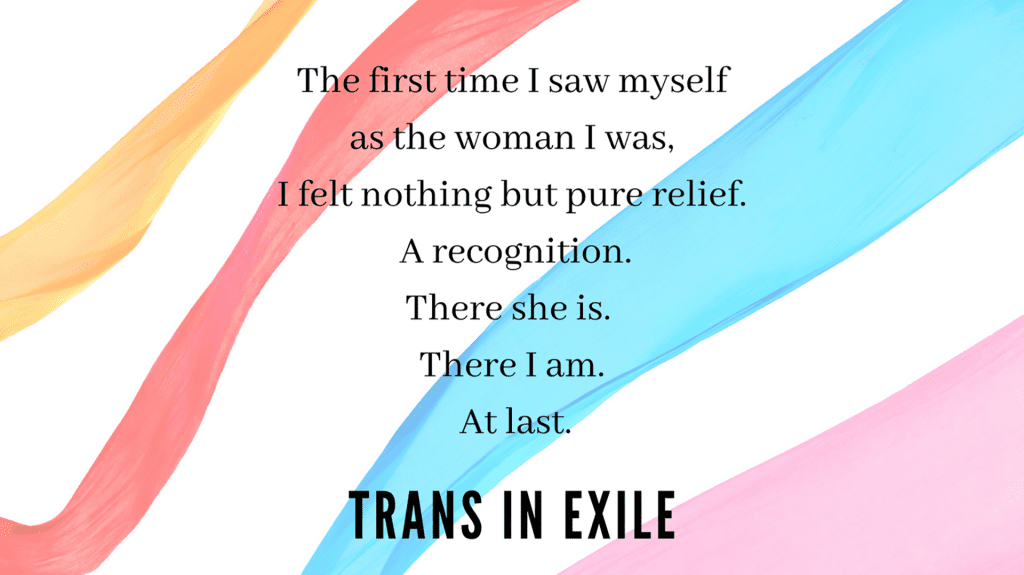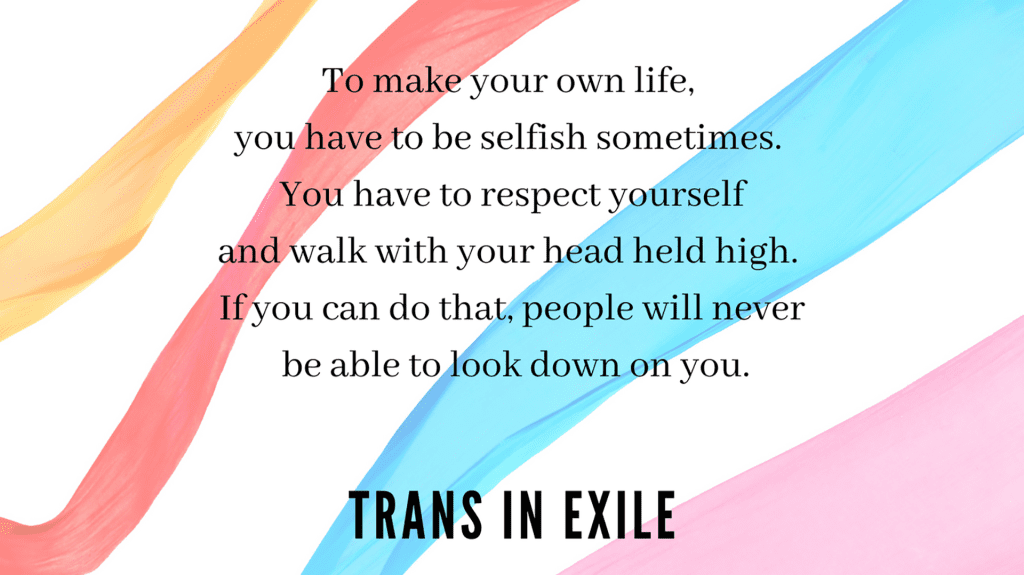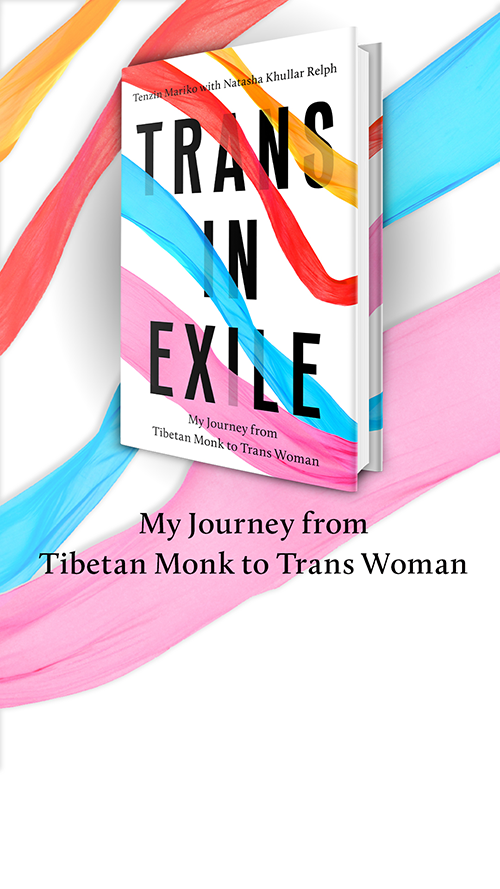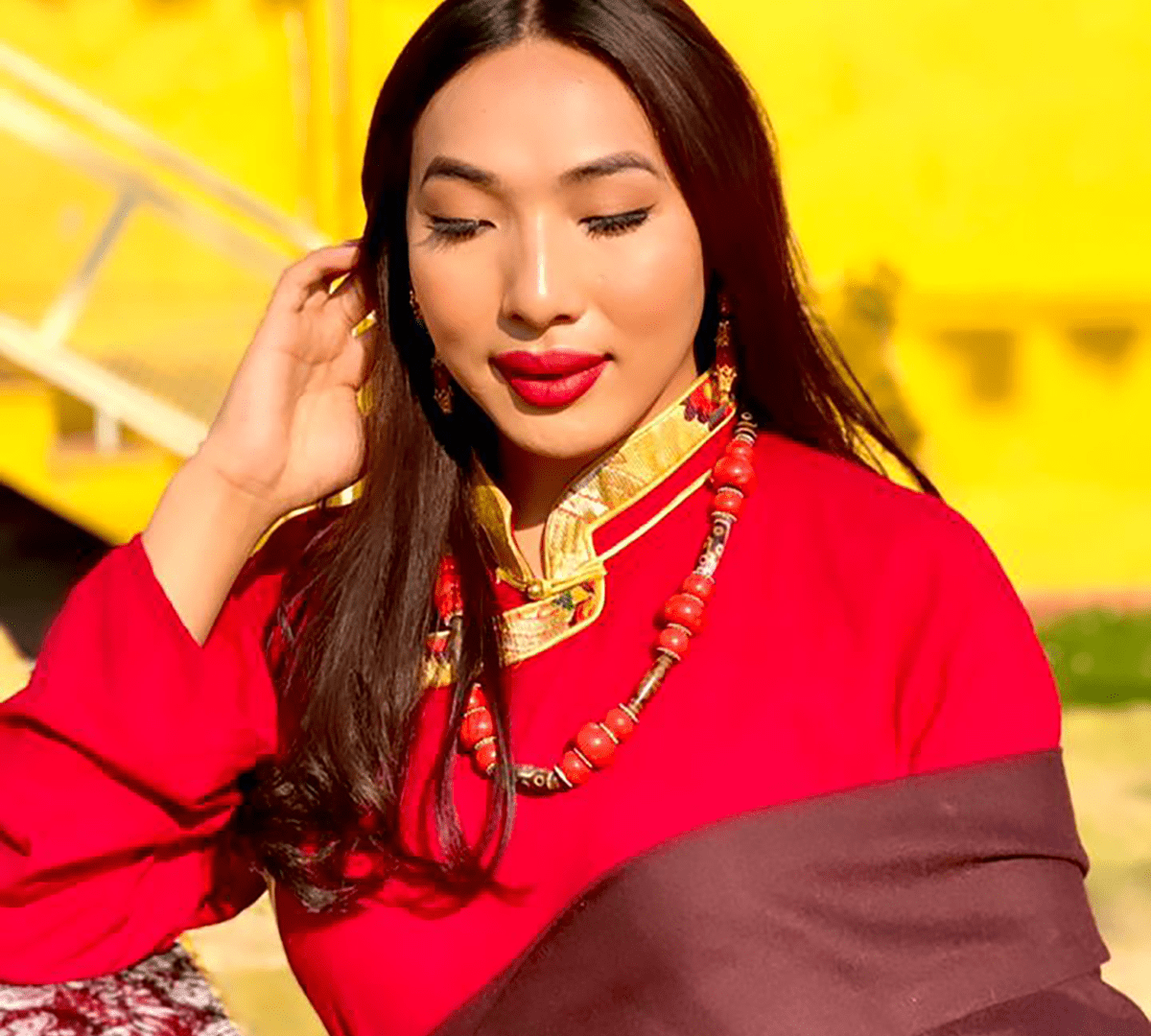On Transgender Day of Visibility 2022, Free Tibet was honoured to speak with Tenzin Mariko, a former Buddhist monk and the first ‘out’ Tibetan transgender woman, who has become famous for her coming out story, as well as her dancing, modelling, and make-up artistry. We sat down with Mariko to talk about the unique challenges she faced as the first out transgender woman in the Tibetan community, as well as the book she is writing about her experiences along with journalist Natasha Khullar Relph.
Free Tibet: You came out to the world in 2015 at the Miss Tibet Pageant in Dharamshala, in spectacular fashion. At that moment, when you stepped onto stage as Mariko for the first time, how did you feel?
Tenzin Mariko: The first time I went up onto the stage it was so scary, I was so nervous. I didn’t know what the reaction was going to be. Behind the stage I was shaking, I really thought people were going to throw eggs, tomatoes, and stones at me!
But, when I was up on the stage, when they started playing the music, I was not listening to anyone! I was just feeling the music and performing from the heart, not looking at anyone. Everything went so well, and everyone fell in love.
You didn’t get that reaction you feared then?
Exactly! It was totally the opposite. They were giving me lots of applause and shouting: “Once more! Once more!” It was so supportive.
What was the response from the Tibetan community when you first came out as trans?
It was totally new for them to see someone like me. It was like a scandal. Later on it became better, but when I came out for the first time it was like an earthquake; people were talking about me for months and saying really s****y things about me. There were supportive people as well, but maybe only 30% were supportive. Today it is more like 90% supportive… and those other 10% of people just don’t understand.
Even though, at the beginning, you didn’t have a lot of support from the community, were you able to find support from your friends and family?
Yes, from my friends. For my family it was difficult. It took a couple of years for them to accept me. I have a few foreigner friends, they were teaching me about LGBTQ+ and encouraging me to stay strong and remain true to myself.
Everything got much better in the years after I came out. Everything is so different now!
From the sounds of it, you faced a lot of adversity in those early years. How were you able to overcome those challenges to your identity?
I think I… just didn’t give a s**t about anyone talking about me!
The most important thing is just being myself, not thinking about what others think of me. People don’t give me credit to live my life, I have to own it by myself!
Every time you begin a new thing in life, there will always be a struggle. My struggles are different to other peoples’, but I face them the same as everyone else. I didn’t let it get me down, because I did not feel alone in these struggles… everybody has struggles when they start a new life.

Tenzin Mariko from ‘Trans in Exile‘
You are writing a book along with Natasha Khullar Relph called ‘Trans in Exile: My Journey from Tibetan Monk to Trans Woman’. How do you feel that living in exile has shaped your experiences and journey in finding your identity?
As a Tibetan refugee living in India, I am in exile. I don’t think that I feel that different, to be honest. I feel as though I am living in my own country. It’s only really when I go to Tibetan events that I start to realise I am a refugee.
Mariko invites her friend and co-author Natasha to give her view on the question:
After having spoken to Mariko for a long time, one of the things that really stood out to me was that we know the phrase ‘Tibetan in exile’, but when Mariko came out as trans it was almost like a double layer of exile: “I’m already exiled from my country, if I open up about this identity to the world do I also become an exile from my community?” It would have been an easier journey if she had moved to another country, like the UK or USA, in terms of being a trans person, but she didn’t want to leave India and the Tibetan community; she didn’t want to feel that she had been doubly-exiled from who she is at her core.
I also just want to add that, when Mariko came out as trans, she didn’t even know the word ‘trans’. She just knew how she felt, but didn’t know that this was a movement or identity. At that point, there was no conversation about gender and sexuality in the Tibetan public sphere.
Mariko then picks up from Natasha:
I had no idea about words like gay, lesbian, and LGBTQ+. I was living in a monastery at the time, and who would even teach me about those things? No-one! I just had to chant, pray, and study. So when I came out and got to know those new words and communities, I realised that there were so many others like me.
So, in a way, your coming out was the start of a conversation in the Tibetan community about topics like gender and sexuality?
There might have been gay and lesbian Tibetans before, but I didn’t know. There were girls with short hair and tomboy-ish looks who would get called ‘lesbian’ at school, but just as a nickname. If a boy acted girly in school they would be given a nickname. I got this many times when I was at school, but I didn’t know that there were terms for LGBTQ+ people.
You mentioned that you faced a lot of bullying in school.
I have spent so much of my life with bullies. When I was in school. When I was in the monastery. When I came out as a trans woman I got bullied worse than ever. I have spent ten years of my life dealing with bullies and bullies’ words.
It’s been seven years now since you came out. Do you think there is more openness and acceptance now around gender and sexuality in the Tibetan community?
Yes! There’s so much more!
I think that the community right now is so much better. I see lesbian and gay couples walking in the street, and they have their heads held up in pride as they walk. Nobody judges them, they don’t get looked at in the way that I used to.
There are so many bisexual people, so many lesbians. I think gay men may still find it a bit harder to come out in our community. Maybe they cannot open up in the same way, but they can open up in their own circle.

Tenzin Mariko from ‘Trans in Exile‘
You have a lot of skills and interests, you do a lot of modelling and makeup art, as well as dancing. What got you interested in those things?
I never thought I would become a dancer. The public fell in love with my dancing and now they invite me everywhere. But, I have always been interested in makeup. When I was a monk I used to put on mascara and lip gloss and go to classes with such nice eyebrows! When I was a kid, I used to steal my mom’s lipstick and put it all over, even putting it on my cheeks to use as blush.
I was always so inspired by looking at those Victoria’s Secret fashion shows, those angels on the runway. I always wanted to be a model, like a runway model. When I got my first smartphone I started watching YouTube. I would watch these Victoria’s Secret fashion shows and these huge [makeup] YouTubers.
I went to school in Delhi and learned to be a professional makeup artist, but when I came out to the community people took me in a different direction, like a dancer and entertainer. I love doing shoots. I love being in front of cameras. Now, though, I have become a dancer, an entrepreneur, an LGBTQ+ speaker. It’s completely different, but I’m okay with it.
Those modelling parts are going to go away as I am getting older… and getting thicker!
I see from your Instagram page that you take a lot of photographs in traditional Tibetan clothing. Do you have a favourite outfit?
I like to wear Khampa Chupa (ཁམས་པའི་ཕྱུ་པ་). I’m not sure if you know what that is, but it is just a chupa [traditional Tibetan dress] from my province [Kham].
If I am on the red carpet, I would rather wear a chupa than a gown, because I am so proud to be Tibetan. The gowns only look pretty, but with the Tibetan dress there is a story, there are many more connected traditions. So, I would much rather wear a chupa than a gown, and I always wear a chupa when I go dancing.
When you wear a chupa in public do people ask about it?
Yeah! I am always explaining that this is my traditional Tibetan dress. They always tell me that it is so pretty, and I am like: “I know!”
In 2018, you became a Brand Ambassador for the Tibetan National Women’s Football team. How did you come to be involved in that?
They wanted to have a very strong personality and a woman who was fit, I think that’s why they chose me. I don’t even know how to play soccer! But, I was really fit at the time, really tall, and strong enough to stand on my own feet and try to inspire other women.
Do you play any sports?
I do! I love badminton, table tennis and swimming. All those games that I like aren’t going to be harmful to my body, so I don’t get scars. As soon as you fall down in soccer or basketball you get scars everywhere!
Are there any Tibetans in particular who inspire you?
Mariko gestures to the portrait hanging behind her.
His Holiness the Dalai Lama. Teaching kindness and compassion, and practising Buddhism in your everyday life, rather than just going to the temple and practising mantras. Be a good person, and be yourself.
I saw him [His Holiness the Dalai Lama] a few weeks ago in a temple. We were so emotional, but so blessed to see him. Whenever I see him he always has this halo around him. It’s so bright that I can’t even look at him, it’s such a strong emotion that I can’t explain it.
Today, 31 March, is Transgender Day of Visibility. Do you have any words of support or encouragement for young Tibetans who might be questioning their gender identity or sexuality?
No matter what happens in your life, just don’t give up! Don’t listen to [negative] people. They will always drag you down, they will always pull at your legs. Follow your heart. Be the authentic person you are. Be true to yourself!
Before loving others, you should love yourself. Then, you can love others more. Self-love first, then love others, then share your emotions with everyone.
On the way, you will have struggles. Struggling is a part of life, it is always there for everyone. Just don’t give up! Walk forward and show the world your authentic self!





